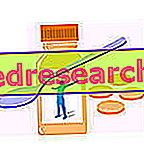Effects of coffee and caffeine
For many, coffee is not a simple custom, but a moment of profound pleasure; for this reason, when doctors impose it, it is so difficult to give up the beloved cup.

Safe Amount of Caffeine
The available data on the healthiness of this drink and its medical opinions are conflicting. Unlike other substances (cocaine, heroin, alcohol, etc.) a good coffee has never led anyone to commit crimes, prostitute themselves or request the intervention of medical aid. However, if taken at high doses, this drink is not entirely without side effects.
With exceptions, doses below 300 mg of caffeine per day seem to be compatible with the health status of most adult individuals.
The safe dose of caffeine in a daily diet is therefore 300 mg (the same contained, roughly, in three cups of espresso or 6 cups of tea).
This limit can also be reached by ingesting 10 cans of coca cola, 8 cups of hot chocolate or 400 grams of extra-dark chocolate.
For this reason it is necessary to always take into consideration the synergistic and cumulative effect of the various foods and, together with it, also the contribution of some caffeine-based drugs, such as certain analgesics, burns fats and anorectics.
In children, as a rule, the daily dose of caffeine should not exceed 100 mg, an easily verifiable limit with a cola-type drink and with a piece of dark chocolate.
Tolerance
It should be noted that with the usual use a certain tolerance towards coffee is established.
This explains why, in subjects who make little use of this drink, the intake of 200-250 mg of caffeine is often sufficient to trigger disorders such as insomnia, headache, anxiety, irritability and hot flushes.
Effects of Caffeine
| MODERATE DOSES (4mg / kg per day) | AT HIGH DOSAGE * (≥ 10mg / kg per day) |
Stimulates gastric, salivary and biliary secretion; therefore it has a mildly digestive effect. | Especially if fasted, it can cause heartburn and stomach acid, esophagitis and gastroesophageal reflux. |
In small doses it slows down the heart rate, causes coronary dilation and bronchodilation; can improve allergic and asthmatic conditions. | It can cause tachycardia, hypertension and arrhythmias. |
| Improves psychomotor activity, athletic performance, mood and resistance to sleep and fatigue. | It has an anxiogenic effect and causes tremors, insomnia and excitability. |
Useful adjuvant in the treatment of obesity (anorectic and thermogenic effect); mild diuretic properties. | By reducing the absorption of calcium and iron, it favors the appearance of osteoporosis and anemic pictures. |
* The negative effects worsen when coffee is associated with other psychoactive drugs such as alcohol or tobacco. | |
When to Avoid Coffee
The use of traditional coffee should be limited, or in any case replaced with decaffeinated coffee, in the event of:
- peptic ulcer
- dyspepsia
- hypersecretive gastritis
- reflux disease
- hypercholesterolemia
- ischemic heart disease
- arterial hypertension and cardiac arrhythmias
- abuse of alcohol, smoking or other psychoactive substances
- pregnancy (no more than two cups a day)
- fibrocystic mastopathy
Curiosity
- the lethal dose of caffeine for humans is about 100 grams; although similar dosages are practically impossible to achieve in the immediate future, chronic over-intake of coffee is associated with the side effects described above;
- a cup of bitter coffee contains about 2 calories;
- a cup of bitter coffee stained with milk contains 10;
- a coffee with a teaspoon of sugar provides about 20 calories;
- the caffeine content of the coffee varies according to the preparation methods (it is lower in the soluble, intermediate in the espresso, high in the traditional mocha and maximum in the unfiltered coffee or obtained with gravimetric (Neapolitan) percolation;
- the caffeine content of coffee varies according to the quality of the raw material (among the most known species there is a minimum in Coffea humboltiana, intermediate in Coffea arabica and maximum in Coffea robusta );
- an athlete tests positive for anti-doping tests when the concentration of caffeine in his urine exceeds 0.012 mg / ml (= 12 mcg / ml). It is not easy to determine exactly what the intake dose can overcome this threshold. It is generally recommended not to take more than 6-8 cups of espresso or two or three cups of traditional coffee in the three hours before the competition.



